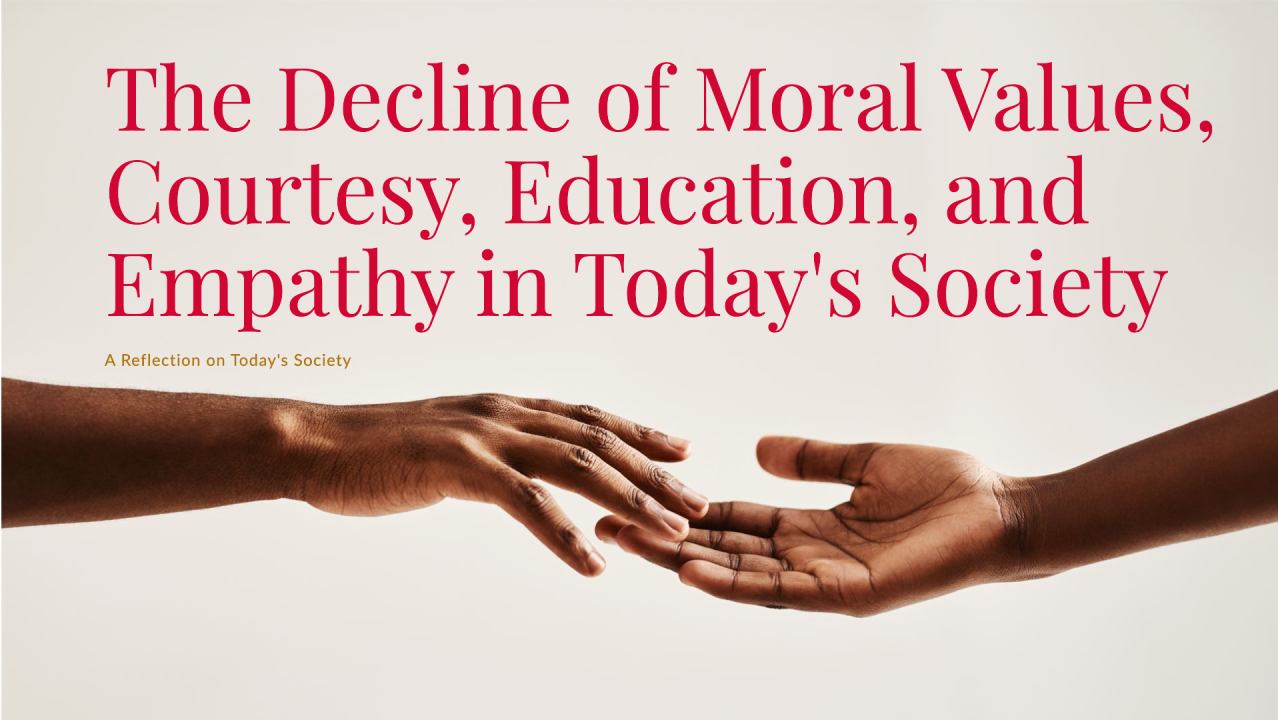Christian Life
The Fruit of the Spirit: A Guide to Christian Living
The fruit of the Spirit provides a comprehensive guide to Christian living, offering a blueprint for how believers should live in accordance with God’s will

The Fruit of the Spirit: A Guide to Christian Living
The Christian life is a journey of transformation, one that is rooted in a deep relationship with God through Jesus Christ. Central to this transformation is the work of the Holy Spirit, who empowers believers to live in a way that reflects God’s love, holiness, and grace. In Galatians 5:22-23, the apostle Paul lists what are known as the “fruit of the Spirit,” which are qualities that should characterize the life of every believer. These virtues—love, joy, peace, forbearance, kindness, goodness, faithfulness, gentleness, and self-control—serve as a guide to Christian living, helping believers grow in their walk with God and become more like Christ.
In this article, we will explore the meaning of each fruit of the Spirit, its significance in the life of the believer, and how it can be cultivated in daily life. Understanding and embodying the fruit of the Spirit is essential for living out the call to be a reflection of Christ’s character in the world. As we delve into each fruit, we will see how they are interconnected and how they work together to produce a life that glorifies God.
1. The Context of the Fruit of the Spirit
Before examining the individual qualities of the fruit of the Spirit, it’s important to understand the context in which Paul writes about them. In Galatians 5, Paul contrasts the works of the flesh with the fruit of the Spirit. The “works of the flesh” (Galatians 5:19-21) include actions such as sexual immorality, idolatry, hatred, jealousy, and drunkenness. These behaviors are characteristic of a life that is not yielded to the Holy Spirit, and they lead to spiritual death.
In contrast, the “fruit of the Spirit” represents the characteristics that should flow from a life that is in step with the Holy Spirit. The fruit is not something that can be manufactured by human effort but is the result of the Holy Spirit’s work within the believer. As Christians submit to the Spirit’s leading and guidance, these qualities gradually become evident in their lives. The fruit of the Spirit reflects God’s nature and serves as a powerful witness to the world of His transformative power.
2. Love: The Foundation of the Fruit of the Spirit
The first and most foundational fruit of the Spirit is love. In Galatians 5:22, Paul begins with love because it is the essence of the Christian life. In 1 John 4:8, we are told, “Whoever does not love does not know God, because God is love.” Love is not merely an emotion but an active, self-sacrificial choice to seek the well-being of others, even at personal cost.
a. The Nature of Love
The love that the Holy Spirit produces in the believer is agape love—the unconditional, selfless, and sacrificial love that God has for humanity. It is the kind of love that Jesus demonstrated when He gave His life on the cross for the forgiveness of sins (John 15:13). This love is not based on feelings or circumstances but is a conscious decision to act in the best interest of others.
Paul emphasizes the centrality of love in 1 Corinthians 13, where he writes that love is the greatest of all virtues, surpassing even faith and hope. Without love, all other spiritual gifts and acts of service are meaningless (1 Corinthians 13:1-3). Love, as a fruit of the Spirit, is the foundation of the Christian life and the most visible sign of God’s presence in a believer’s life.
b. Cultivating Love
To cultivate love in our lives, we must first understand God’s love for us. Romans 5:8 tells us that “God demonstrates his own love for us in this: While we were still sinners, Christ died for us.” When we grasp the depth of God’s love, it compels us to love others in return. The Holy Spirit enables believers to love even those who are difficult to love, including enemies, as Jesus commands in Matthew 5:44.
Love is not always easy, and it requires intentional effort to overcome selfishness and pride. The Spirit helps believers grow in love by teaching them to forgive, to show kindness, and to put others’ needs before their own. As we yield to the Spirit’s work, love becomes a natural expression of our relationship with God and others.
3. Joy: A Deep, Lasting Delight
The second fruit of the Spirit is joy. Joy is more than mere happiness; it is a deep, lasting sense of delight that comes from knowing and experiencing God’s goodness. Joy is a fruit of the Spirit because it is produced by the Holy Spirit and is rooted in the believer’s relationship with God. The apostle Paul encourages believers to “rejoice in the Lord always” (Philippians 4:4), highlighting that true joy is found in God, not in circumstances.
a. The Nature of Joy
Joy is a fruit that transcends external circumstances. While happiness can fluctuate based on life events, joy remains constant because it is grounded in the unchanging nature of God. The joy that the Spirit produces is a deep assurance of God’s love, faithfulness, and provision. It is the joy of knowing that one’s sins are forgiven and that eternal life is secure through Jesus Christ.
Jesus spoke of the joy that comes from abiding in Him, saying in John 15:11, “I have told you this so that my joy may be in you and that your joy may be complete.” Joy is not something that believers generate on their own; it is the result of being in fellowship with Christ and experiencing the fullness of His presence.
b. Cultivating Joy
To cultivate joy in our lives, we must focus on the goodness of God and His faithfulness. In Psalm 16:11, the psalmist declares, “You make known to me the path of life; you will fill me with joy in your presence, with eternal pleasures at your right hand.” Spending time in God’s presence through prayer, worship, and reflection on His Word is essential for cultivating joy. As believers trust in God’s promises and His sovereignty over their lives, they can experience a joy that surpasses all understanding.
Joy is also cultivated by choosing to focus on the positive aspects of life rather than dwelling on difficulties or disappointments. In Philippians 4:8, Paul encourages believers to “think about whatever is true, whatever is noble, whatever is right, whatever is pure, whatever is lovely, whatever is admirable.” A mindset focused on God’s goodness and the blessings He provides will produce joy in the heart.
4. Peace: A Deep Sense of Harmony
Peace is the third fruit of the Spirit. Biblical peace is not merely the absence of conflict but a deep sense of inner tranquility that comes from knowing that one’s life is in harmony with God. Peace is rooted in the assurance that God is in control and that He is working all things together for the good of those who love Him (Romans 8:28). Jesus offers this peace to His followers, saying in John 14:27, “Peace I leave with you; my peace I give you. I do not give to you as the world gives.”
a. The Nature of Peace
Peace is a fruit of the Spirit because it is the result of the Holy Spirit’s work in the believer’s heart. It is a peace that transcends circumstances and is not dependent on external conditions. In Philippians 4:6-7, Paul encourages believers to “do not be anxious about anything, but in every situation, by prayer and petition, with thanksgiving, present your requests to God. And the peace of God, which transcends all understanding, will guard your hearts and your minds in Christ Jesus.”
This peace is a result of trusting in God’s sovereignty and His ability to bring peace in the midst of life’s trials. It is a peace that allows believers to face challenges with confidence, knowing that God is with them and that His will is being accomplished in their lives.
b. Cultivating Peace
To cultivate peace, believers must rely on the Holy Spirit and trust in God’s promises. Prayer is an essential tool in cultivating peace, as it allows believers to release their anxieties and place their trust in God’s hands. In Matthew 6:25-34, Jesus teaches His followers not to worry about their needs but to seek first God’s Kingdom, trusting that He will provide.
Peace is also cultivated by seeking reconciliation with others. Jesus teaches in Matthew 5:23-24 that if someone has something against us, we should go and be reconciled with them. As believers seek peace with others and work to maintain harmonious relationships, they experience the peace of God in a deeper way.
5. Forbearance (Patience): Enduring Trials with Grace
Forbearance, often translated as “patience,” is the fourth fruit of the Spirit. Patience is the ability to endure difficult circumstances, delays, and disappointments with a calm and trusting spirit. It is the opposite of impatience, which often leads to frustration and anger. The Bible teaches that patience is a key aspect of the Christian life, especially when facing trials.
a. The Nature of Patience
Patience is not just the ability to wait; it is the ability to wait with a positive and trusting attitude. In James 5:7-8, James encourages believers to “be patient then, brothers and sisters, until the Lord’s coming. See how the farmer waits for the land to yield its valuable crop, patiently waiting for the autumn and spring rains.” Patience involves trusting in God’s timing and being willing to endure hardship for the sake of His Kingdom.
b. Cultivating Patience
Patience is cultivated through trials and challenges. James 1:2-4 reminds believers that the testing of faith produces perseverance, which leads to spiritual maturity. As believers face difficulties with faith in God, they grow in patience and endurance. Patience is also cultivated through prayer and relying on the Holy Spirit for strength and perseverance.
6. Kindness and Goodness: Reflecting God’s Character
The fifth and sixth fruits of the Spirit, kindness and goodness, reflect God’s character and are expressed in how believers treat others. Kindness involves showing genuine care and concern for others, while goodness involves acting in ways that are morally upright and beneficial to others.
a. The Nature of Kindness and Goodness
Kindness is an expression of God’s love and grace toward others, while goodness is the desire to do what is right and just in every situation. Together, these qualities reflect the nature of God, who is “kind to the ungrateful and wicked” (Luke 6:35) and who “is good to all” (Psalm 145:9).
b. Cultivating Kindness and Goodness
To cultivate kindness and goodness, believers must imitate Christ’s example. Ephesians 4:32 instructs believers to “be kind and compassionate to one another, forgiving each other, just as in Christ God forgave you.” Practicing kindness and goodness involves looking for opportunities to serve others, to show empathy, and to act in ways that reflect God’s goodness.
7. Faithfulness: Trusting God in All Things
Faithfulness is the seventh fruit of the Spirit, and it refers to the ability to remain loyal, reliable, and steadfast in one’s commitment to God and others. Faithfulness is demonstrated through consistency, dependability, and trustworthiness.
a. The Nature of Faithfulness
Faithfulness is rooted in God’s faithfulness to His promises. In 2 Timothy 2:13, Paul writes, “If we are faithless, he remains faithful, for he cannot disown himself.” God is the ultimate example of faithfulness, and believers are called to reflect His faithfulness in their relationships with others.
b. Cultivating Faithfulness
Faithfulness is cultivated by building trust in God and relying on His strength. As believers walk in obedience to God’s Word and fulfill their commitments, they grow in faithfulness. Trusting God with one’s life and being reliable in relationships are key aspects of cultivating faithfulness.
8. Gentleness: Humility and Strength Under Control
Gentleness, also referred to as meekness, is the eighth fruit of the Spirit. It involves humility and strength under control. It is not weakness but the ability to respond with grace and gentleness, even in difficult situations.
a. The Nature of Gentleness
Gentleness is exemplified by Jesus, who described Himself as “gentle and humble in heart” (Matthew 11:29). Gentleness involves controlling one’s emotions and reactions, choosing humility over pride, and responding with kindness rather than harshness.
b. Cultivating Gentleness
Gentleness is cultivated through submission to God’s will and the work of the Holy Spirit in the believer’s heart. It involves choosing to be patient, humble, and considerate in all circumstances.
9. Self-Control: Living with Discipline and Restraint
The final fruit of the Spirit is self-control. Self-control is the ability to govern one’s desires, emotions, and actions in a way that honors God. It is an essential quality for living a life that is pleasing to God and fulfilling His purposes.
a. The Nature of Self-Control
Self-control involves resisting the temptation to indulge in sinful desires and choosing to live in obedience to God’s commands. It is the opposite of living according to the flesh, which is marked by indulgence and a lack of restraint.
b. Cultivating Self-Control
Self-control is cultivated through the power of the Holy Spirit and a commitment to living according to God’s Word. It involves practicing discipline in all areas of life, including speech, actions, and thoughts. As believers grow in their relationship with God, they develop the ability to exercise self-control in all situations.
10. Conclusion
The fruit of the Spirit provides a comprehensive guide to Christian living, offering a blueprint for how believers should live in accordance with God’s will. Each fruit—love, joy, peace, forbearance, kindness, goodness, faithfulness, gentleness, and self-control—reflects the character of Christ and the work of the Holy Spirit within the believer. Cultivating these fruits in daily life is a process that requires intentional effort, prayer, and dependence on the Holy Spirit. As believers grow in these virtues, they become more like Christ and reflect His love and grace to a world in need. Through the fruit of the Spirit, Christians can live lives that bring glory to God and bear witness to the transformative power of the Gospel.
Christian Life
The Tragedy of Moral Decay in Higher Learning institutions
Explore the growing moral decay in higher learning institutions, its causes, consequences, and impact on academic integrity and societal values.

For years, universities, Colleges and other Higher learning institutions were seen as places of intellectual growth and character development. However, many higher learning institutions today have become breeding grounds for moral decadence, where students and even lecturers engage in behaviors that destroy both academic integrity and personal values. From unchecked sexual immorality to rampant substance abuse, violence, and corruption, the decay runs deep.
Sexual immorality is one of the biggest stains on campus life. What was once considered shameful has become normal, even celebrated. Fornication is common, with students engaging in casual relationships driven by lust rather than love. Many young women fall victim to deceitful love affairs, only to be left heartbroken and used.
The normalization of lesbianism and homosexuality has also taken root. Some students, influenced by peer pressure or curiosity, experiment with same-sex relationships, leading to moral confusion and identity crises. Others engage in secret affairs with older partners or even lecturers who manipulate them in exchange for better grades or
financial benefits. Adultery is rampant, with some married lecturers preying on students, turning the academic environment into a den of sexual corruption.
Academic dishonesty is another deep-seated issue. Hard work and diligence are now seen as outdated concepts, replaced by cheating, bribery, and leaked examination papers. Some students no longer feel the need to study, relying instead on corrupt lecturers who sell grades to the highest bidder. The value of education has been reduced to a mere transaction, and many graduates leave university without the knowledge or skills needed to succeed.
Campus life has also become synonymous with drug and alcohol abuse. The pursuit of pleasure has overtaken the pursuit of knowledge. Many students indulge in excessive drinking, turning nights into a blur of parties and reckless behavior. The use of drugs—marijuana, cocaine, and other harmful substances—has become widespread, with some students getting addicted and ruining their futures.
Smoking is no longer seen as a bad habit but as a sign of independence and “maturity.” Shisha lounges and secret drug dens operate freely, drawing in young people who waste their lives in addiction. Many students skip classes, spending their time in bars and drug joints rather than in lecture halls.
As morality declines, violence increases. The lack of self-control and discipline among students has led to tragic incidents of stabbings and deadly fights. Many of these cases stem from toxic love triangles, where jealousy and betrayal push students to take extreme actions.
Reports of students stabbing each other to death over relationships have become disturbingly common.
A boyfriend catches his girlfriend texting another man and, in a fit of rage, pulls out a knife. A girl, blinded by jealousy, attacks a fellow student over suspicions of an affair. Such incidents reveal the deep emotional instability and lack of moral guidance among students, leading to irreversible consequences.
Campus hostels, once meant to be safe spaces for students, have become crime scenes where love-fueled violence erupts. Arguments escalate into fistfights, and fistfights turn into stabbings. Instead of resolving conflicts through dialogue, students resort to deadly force, ending promising lives before they even begin. The inability to manage emotions, coupled with the influence of drugs and alcohol, has made universities hotbeds of violence.
With all these vices comes an inevitable consequence: depression and hopelessness. Many students, trapped in toxic relationships, addiction, and academic failure, fall into deep despair. The pressure to fit into this morally decayed society leaves many feeling empty and worthless.
Christian Life
Nakuru and its Famous Prophet Dr. Owuor

The people of Nakuru love Prophet Dr. David Owuor very much. In the just concluded meeting in NAKURU they didn’t shun to openly confess it.
The business community at large confessed that business flourish most in the presence of the Prophet in the city, owing to the large influx of millions.

Interestingly, the business community gather together in masses at Merica Hotel every morning when the prophet is in the city. Then the prophet comes preaches to them a bit and blesses them.
The next day they will still come again, they feel that the Prophet replenishes their hearts every day.
As the super brilliant and magnificent chariot-like convoy of the prophet heads to the grounds of the healing service or conference, the Bodaboda people in the city escort the elegant convoy of the prophet. It’s a situation full of color and circumstance.
The Prophet preserves acres of lands deliberately near His meetings for the hustlers and all business people to help them take advantage of the millions upon millions. The Prophet further supplies the business people with water and other amenities they need to flourish their business.
When he was leaving Nakuru last Saturday, the business people and the city community gathered in largest numbers at Merica Hotel Kenyatta avenue to Bid Him goodbye. They confessed that they felt sorrowful that he was leaving because they love him very much. The Prophet blessed their families, business, health, new year and encouraged them to love Jesus and live in holiness.
When the Magnificent convoy of the Prophet had left, many people criss-crossed the streets through a short cut to bid the prophet goodbye for a second time.
Had it been possible they would have followed the meteoric Convoy of the prophet; they say that they see the JESUS in the prophet.
The leaders of the county government of Nakuru also thanked the prophet for helping flourish the economy of Nakuru.
Video courtesy; A viral video of a phenomenal in Nakuru, as the City community, business people, hustlers, the rich, all together with believers lined up all the way towards the foot Bridge Celebrating, joyous and bidding goodbye to the wonder inspiring magnificent Convoy of prophet Dr. David Owuor Leaving Nakuru last Saturday.
They requested that the Prophet be coming many times to Nakuru as possible. The Matatu operators also say the same.
Christian Life
What is the Meaning of Christianity?
Christianity is founded on the life, teachings, death, and resurrection of Jesus Christ

Christianity is one of the world’s largest and most influential religions, with over two billion followers worldwide. Rooted in the teachings of Jesus Christ, Christianity is a faith that emphasizes love, grace, redemption, and a personal relationship with God. It has shaped cultures, philosophies, and civilizations for over two thousand years. But what exactly is Christianity, and what does it mean to be a Christian? This article explores the core beliefs, practices, and significance of Christianity in the lives of believers and society.
The Foundations of Christianity
Christianity is founded on the life, teachings, death, and resurrection of Jesus Christ. The name “Christianity” comes from “Christ,” which means “the Anointed One” in Greek. Christians believe that Jesus is the Son of God and the promised Messiah prophesied in the Old Testament. The core foundation of Christianity is rooted in the Bible, which consists of the Old and New Testaments, serving as the authoritative scripture for faith and practice.
God and the Trinity
One of Christianity’s central doctrines is the belief in one God who exists in three persons: God the Father, God the Son (Jesus Christ), and God the Holy Spirit. This doctrine, known as the Trinity, affirms that God is one in essence yet distinct in personhood. The Trinity is a profound mystery that underscores the complexity and unity of God’s nature.
Jesus Christ: The Savior
At the heart of Christianity is Jesus Christ, whom Christians believe to be both fully divine and fully human. Jesus lived a sinless life, performed miracles, and preached about the Kingdom of God. His teachings emphasized love, forgiveness, humility, and the importance of faith in God. His crucifixion is seen as the ultimate sacrifice for humanity’s sins, and His resurrection is the cornerstone of Christian faith, signifying victory over sin and death.
Salvation and Grace
Christianity teaches that salvation is a gift from God and cannot be earned through good deeds alone. Instead, it is granted through faith in Jesus Christ. According to Ephesians 2:8-9, “For it is by grace you have been saved, through faith—and this is not from yourselves, it is the gift of God—not by works, so that no one can boast.” This concept of grace underscores the unconditional love and mercy of God toward humanity.
The Bible: The Word of God
The Bible is regarded as the inspired and authoritative Word of God. It is divided into two main sections:
- The Old Testament, which includes the creation story, the history of Israel, prophecies, and wisdom literature.
- The New Testament, which focuses on the life and teachings of Jesus, the acts of His apostles, and letters to early Christian communities.
The Bible serves as a guide for moral living, spiritual growth, and understanding God’s will. Christians rely on scripture for wisdom, encouragement, and direction in their daily lives.
The Purpose of Christianity
Christianity provides meaning and purpose by answering fundamental questions about existence, morality, and the afterlife. It teaches that humans are created in God’s image, endowed with intrinsic value and purpose. The primary goal of a Christian life is to glorify God, cultivate a relationship with Him, and follow Christ’s teachings.
Love and Compassion
Christianity emphasizes love as the greatest commandment. In Matthew 22:37-39, Jesus declares, “Love the Lord your God with all your heart and with all your soul and with all your mind. This is the first and greatest commandment. And the second is like it: Love your neighbor as yourself.” Love, kindness, and compassion are central to Christian living.
Spiritual Transformation
Becoming a Christian is not just about following a set of rules but undergoing a transformation of the heart and mind. Christians believe in being “born again” (John 3:3), signifying a spiritual rebirth through faith in Christ. This transformation leads to a life of righteousness, humility, and a commitment to doing God’s will.
Christian Practices and Traditions
Christianity is expressed through various practices, rituals, and traditions that strengthen faith and foster community.
Prayer and Worship
Prayer is a fundamental aspect of Christian life. It is a way to communicate with God, seek guidance, express gratitude, and intercede for others. Worship, both personal and communal, is an essential practice, with churches serving as places for praise, teaching, and fellowship.
Sacraments and Ordinances
Many Christian denominations observe sacraments or ordinances that symbolize and affirm faith. The two most widely recognized are:
- Baptism: A public declaration of faith and identification with Christ’s death, burial, and resurrection.
- Holy Communion (Eucharist): A remembrance of Jesus’ sacrifice, commemorating His body and blood through bread and wine.
Fellowship and Church Community
Christianity is not meant to be practiced in isolation. Believers gather in churches to encourage one another, worship together, and study the Bible. The church serves as a spiritual family, providing support, accountability, and opportunities for service.
Christianity’s Influence on Society
Christianity has profoundly impacted history, culture, and ethics. It has inspired humanitarian efforts, education, art, and governance.
Moral and Ethical Teachings
Christian ethics have shaped societal values, emphasizing justice, honesty, charity, and the dignity of human life. Many legal systems are influenced by Christian principles of morality and justice.
Charity and Humanitarian Work
Christianity promotes caring for the less fortunate. Many hospitals, schools, and relief organizations have Christian roots. Christians engage in missionary work, disaster relief, and social justice initiatives worldwide.
Christianity and the Afterlife
Christians believe in eternal life and the promise of heaven. According to John 14:2-3, Jesus assures His followers: “My Father’s house has many rooms… I am going there to prepare a place for you.” The hope of eternal life gives meaning to human existence and encourages believers to live with purpose and integrity.
Challenges and Misconceptions About Christianity
Despite its profound influence, Christianity is often misunderstood or misrepresented. Some common challenges include:
- Misinterpretations of Doctrine: Different denominations have varying theological interpretations, sometimes leading to confusion.
- Criticism of Hypocrisy: While Christianity teaches love and righteousness, some critics highlight instances of moral failure among self-professed Christians.
- Secularism and Atheism: In a rapidly secularizing world, Christianity faces challenges from skepticism and scientific materialism.
Conclusion
Christianity is more than just a religion; it is a way of life centered on faith, love, and a relationship with God through Jesus Christ. It provides answers to life’s deepest questions, offers hope and purpose, and calls believers to live out their faith through love, service, and spiritual transformation. Whether through prayer, worship, or acts of kindness, Christianity remains a guiding force for millions, shaping both individual lives and entire civilizations.
-

 End Times Updates10 months ago
End Times Updates10 months agoProphet Dr. Owuor Awakens Brazil: A Call to Holiness to the Contemporary Church.
-

 Bible11 months ago
Bible11 months agoIsrael War With Iran Significance
-

 End Times Updates10 months ago
End Times Updates10 months agoThe Book of Revelation: A Chapter-by-Chapter Breakdown
-

 Bible12 months ago
Bible12 months agoIsrael Releases Palestinian Prisoners in Hostage Exchange
-

 Jesus10 months ago
Jesus10 months agoRaising Children Together: A Biblical Approach to Parenting in Marriage
-

 Church History10 months ago
Church History10 months agoBiblical Principles for Dealing with Conflict
-

 Bible11 months ago
Bible11 months agoDo Israelites Use the Bible?
-

 Jesus12 months ago
Jesus12 months agoThe Power of Prayer in Strengthening Your Marriage

















